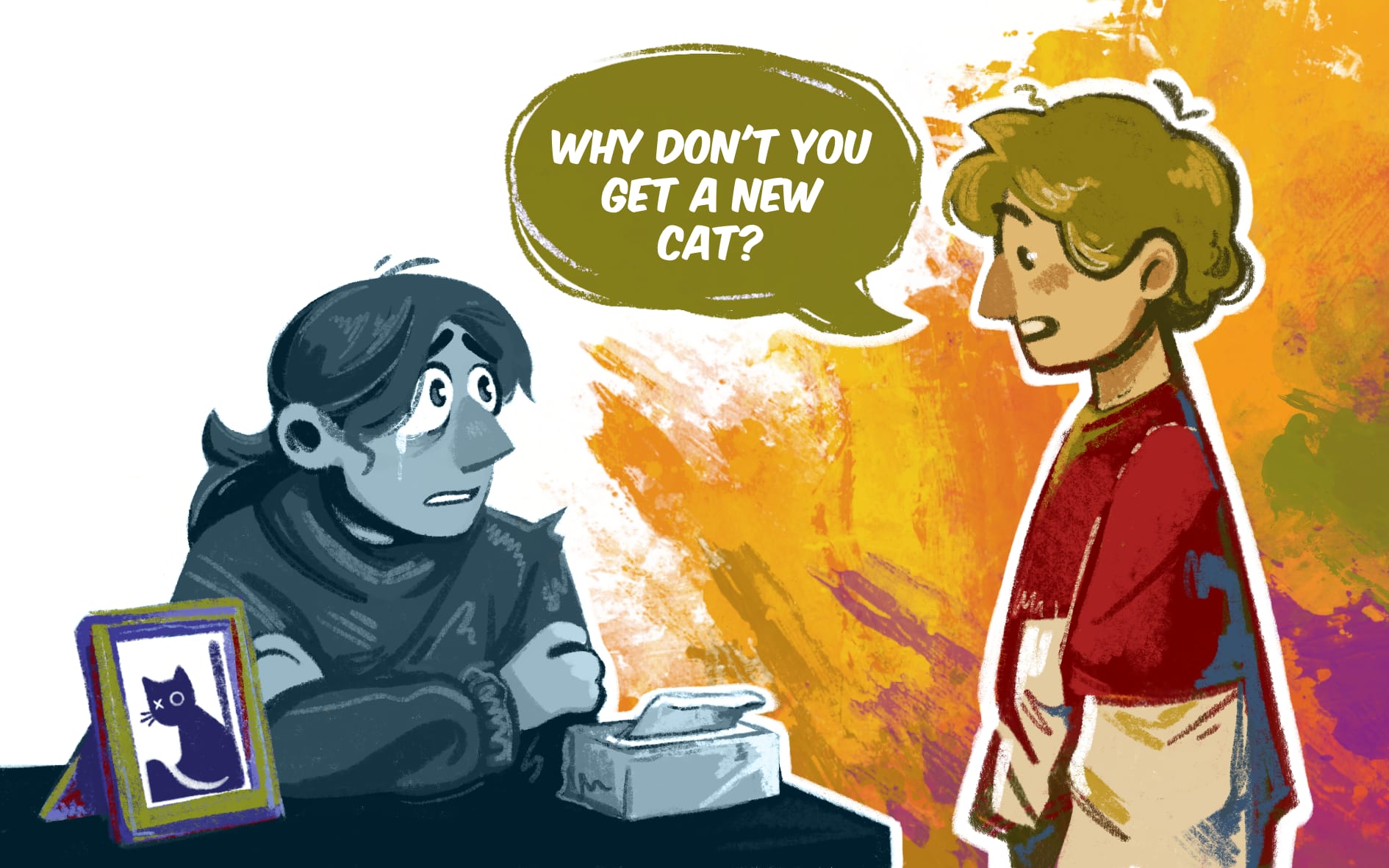
My boyfriend named Research
You might think that whoever refers to their research as a relationship partner must have a twisted sense of romance or a strange method of conducting research. But let me explain…and let us start at the beginning: with my first date.
The first date
I had just started my Research Master in Clinical Neuropsychology when I was offered the opportunity to be an assistant in a new research project: an investigation of psychological and cognitive difficulties experienced by people perceiving and suffering from low sounds around or below the human hearing threshold. This so-called Low-Frequency Noise is still a seldom recognized environmental stressor; so I could be amongst the first researchers in this field. It was, of course, immediately exciting! Entering the Master programme, I hoped to contribute something valuable to society, to explore new topics and, similar to the Starship Enterprise, “to boldly go where no man has gone before”! It was planned that I would be introduced to the new project on the 15th of January 2018 and, before my first date, I was naturally nervous: What is the nature of the research? Will the project and I be compatible? Will we be happy together? Finally, the day arrived, and after an inspirational speech from my supervisor to the relevance of this issue, about the great opportunity of diving into this novel topic, but also a warning about the major responsibility that I will have to bear, it was clear to me: I am the best person for this task!
Butterflies in my stomach
To cut to the chase, we “became a couple” and in the first months, everything was just amazing! My head was spinning; my feet hardly touched the ground. I was eager to get started and I enthusiastically threw myself into the work. I explored the literature, worked on the research design and gathered materials. Suddenly, everything in my studies reminded me of my project. During a statistics course, I considered whether an analysis might be relevant for my data. In a research methods class, I wondered whether the presented methods could be implemented within my research design. During a neuropsychological lecture, I searched for similarities to my research population and evaluated the relevance of newly learned neuropsychological tests. Finally, I could use all my theoretical knowledge gathered from the last years to design and conduct research with which I could contribute to society!
As I was under close supervision, I could observe how experienced researchers develop their ideas. I received feedback about the usefulness and feasibility of my suggestions and also about aspects that I forgot to consider. Much to the dismay of my family and friends, I talked incessantly about my project and I officially apologize here to everyone who had to witness my verbal soliloquies. Eventually, I started fantasizing about our common future: This research could turn into my Master thesis…or into a PhD thesis…or even make me a pioneer in this research field! What an outlook! After years of watching the voyages of the Starship Enterprise, it was my turn “to explore strange new worlds”!
Daily routine and first conflicts
But my honeymoon phase did not last forever and reality began to sink in. The months went by and I spent a tremendous amount of time, nearly every day, with my project. Approaching our six-month anniversary, I progressively settled into routine. The butterflies left, one by one, taking away their illusionary mask. With this, I gradually recognized also the downsides of my partner.
First of all, the work I initially expected to be involved in a research project turned out to be only the tip of a gigantic academic iceberg. Its main body consisted of never-ending hard work, discipline, dedication, persistence, initiative, knowledge, creativity, and constant improvements in the face of criticism, disappointment, and failure. Whenever I assumed a task was drawing to a close, there was something new to read, to organize, to discuss, to obtain, to add, to format, to proofread, or to revise. After realizing that every task required more time and work than initially anticipated, the overwhelming amount of work still ahead of me revealed itself and overshadowed my past accomplishments.
On top of that, a personal challenge hit me full in the face: Dreaded decision-making. Even the tiniest steps in designing and conducting research required numerous and seemingly endless thought-out decisions. Despite my supervisors’ help, the responsibility of making these decisions, especially when facing the constructive criticism of the research team, but also occasionally the destructive or offensive criticism from the public, demanded considerable knowledge and self-confidence. Unfortunately, the innumerable revisions did not pass without leaving some painful bruises on my self-esteem. As a consequence, by the time of our first anniversary, I wondered whether I was competent enough for my beloved, dearest research. Am I confident enough to stand up for our relationship? Accordingly, maintaining my motivation progressively became an act of strength. Why couldn’t I just ask Scotty to “beam me up”?
But could I leave my project behind after all we have gone through?
Letting Go
I would be thrilled, if I could now share with you the ultimate panacea for the romantic and scientific “happily ever after”, but assuming that such a cure-all even exists, I unfortunately do not possess it. In fact, I can barely disentangle the chain of actions leading to my personal happy ending.
It was clear to me that quitting was on no account an option. First, this was not compatible with my ambitious identity and second, I already invested extensive work in this project. Nevertheless, I decided to let go for a while and to give us some space. From now on, we only met weekly. But after a short, initial period of delighting independence, my everyday life felt incomplete. I really missed my project! I missed our numerous meetings, the intense work, and the unexpected twists; I craved for being challenged, for getting creative and – I would never have guessed it – for making some dead good decisions!
Albert Einstein hit the nail right on the head when he said that “in the middle of difficulty lies opportunity”. All the uncountable revisions and criticism were chances for development. My research and I were strongly connected, growing with and because of each other. But I was far too long too deep in the topic, so I could not see the forest for the trees. Our relationship difficulties forced me to take a few steps back. Standing on a high ground, I could now take in the breathtaking view of my research landscape. I saw the hills and valleys of our relationship around me, I discovered my previous achievements and contributions to science and society behind me, and far in the distance ahead of me, I spotted the home stretch! This view, although not being romanticized any more, was stunning! I really loved it. I loved him. My boyfriend named Research.
In the end, not giving up, but being able to let go was the secret to my personal “happy ending”. In retrospect, I am grateful for these challenging times. I learned that it won’t always be easy, but it will never get boring. He will always honestly confront me with my weaknesses and boundaries, but he will simultaneously help me to get the most out of me. A favor that I will, of course, return. Knowing that I can make it through exhausting times arms me with new willpower, motivation, curiosity, and confidence to face my next challenges. And if I get hit badly, I can rely on my incredibly experienced and empathic supervisors.
“Let’s see what’s out there.
Engage!”
– Captain Jean-Luc Picard, Starship Enterprise –
Future perspectives
Apropos “Engage”, I really hope to take our relationship to the next level in the upcoming months: I will apply for a Ph.D. fund, strongly hoping for the “Yes”. So wish me luck!



